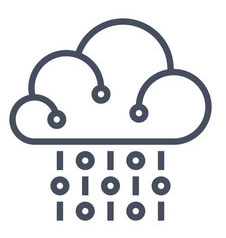Digitalization
vs
Digitization
WHAT IS DIGITALIZATION?
There is widespread confusion between the terms “Digitalization” and “Digitization”

Digitization is converting something into bits and bytes, or 1’s and 0’s.
Digitization is the process of taking analogue information, such as documents, sounds or photographs, and converting into a digital format that can be stored and accessed on computers, mobile phones and other digital devices.

Digitalization is converting a manual process into a digital process
Digitalization means to convert business processes over to use digital technologies instead of offline systems and provide new revenue and value-producing opportunities.
DIGIPROCTOR | HELPS TO DIGITALIZE YOUR MANUAL EXAMINATION PROCESS
Examples of Digitization
- Scanning a document into a PDF
- Scanning a photograph into a digital image file e.g jpg, png
- Capturing printed or handwritten notes via OCR
- Converting typed or handwritten reports into usable data
- Converting paper question papers into digital format
Examples of Digitalization
- Sending messages via Email instead of Post
- Using Video Conferencing instead of Face-to-Face meeting
- Moving from Paper-based Examinations to Online Examinations
- Using AI and Remote Proctoring instead of using Human Invigilators at examination site
Examples of Tools used for Digitization
- Scanner
- Digital Camera
- Online Forms & Software
- OCR Software
Examples of Tools used for Digitalization
- ERP Software
- Messaging & Conferencing Software, e.g Zoom.
- Computers, Servers & Networks
- Online examination and proctoring platform, e.g Digiproctor.
Benefits of Digitization
- Faster access to information
- More permanent storage of information
- Access to historical data
Benefits of Digitalization
- Efficiency & productivity gains, e.g. Digiproctor cuts costs by over 75% and reduces efforts of stakeholders by over 50%
- Greater accuracy of information
- Enhanced visibility
- Better decision making
Digitalization transforms an organization because replacing manual process with new technologies provides ways of doing work that were previously unavailable.
A digitalized business can generate additional revenue by providing additional value to customers and opening up new opportunities and markets.
Efficiency gains are another key benefit of business digitalization, with less double-handling of data and greater accuracy of work, leading to better utilization of resources and greater profitability.
Digitalization also enables better visibility of an organization’s performance through real-time data capture and reporting, and this improvement in the quality of data enables business decisions to be made more quickly and with greater accuracy.